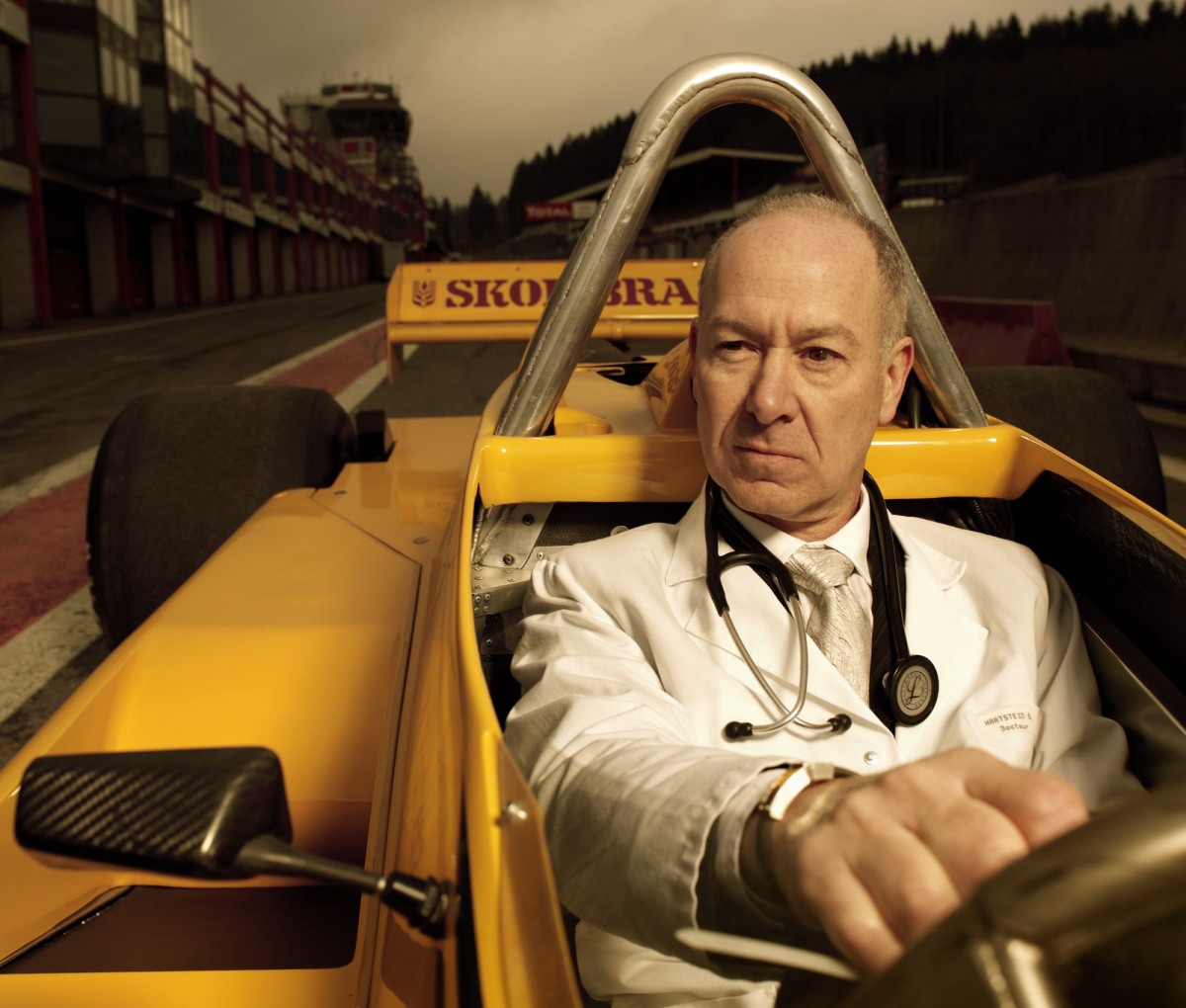A new experience
- -
- -

My armchair is ready. The television is warmed up. Why ? Because for the first time, since 1997, I am going to watch a Grand Prix on the TV. First as “The Prof’s” assistant, then as F1 Medical Delegate, and finally as the Medical Rescue Coordinator for the Formula 1 championship, I’ve attended every race for the past 16 years.
This changed just before the 2012 Grand Prix of the United States, when I was informed by the FIA that my contract was not going to be renewed.
You might be wondering what the reasons were for this decision. Well so am I, because none have been given! None from Professor Saillant, a retired orthopedic surgeon, President of the FIA Medical Commission, none from Professor Piette, a retired internist, the current F1 Medical Delegate. The deafening silence, coupled with the unanimous support of the drivers, the teams, and you the public, comfort me in thinking that the reasons are purely personal. In any event, I’ve known since I started working in motorsport that nothing is eternal in this game, and I’m facing my firing as an opportunity to do things that the intense calendar has not allowed me to do until now.
My replacement is Dr. Ian Roberts, a colleague but also a friend. Ian has been involved in motorsports medicine for years, and has had to step down as Chief Medical Officer of the Silverstone Circuit (and the British GP!) in order to take his place in the front passenger seat of the C63 AMG Estate car that is the F1 Medical Car. Ian is experienced, intelligent and diplomatic. Just the right combination of qualities to succeed at the job. I sincerely wish him the best of luck in this position that is in equal parts demanding and fascinating.
It goes without saying that the sudden and unexplained end to my role in Formula 1 was difficult to accept. Not so much for the obvious things – the travel, the circuits, being close to the cars and the action – but mostly for two, more subtle, reasons.
First of all, there’s the human side of the work. Working with passionate and motivated medical teams all over the world has been the most rewarding aspect of the job, and the one I will miss the most. These people have become my friends, and as I’ve said before, it’s a bit like having cousins you like a lot everywhere on the planet. You only see them once a year, so you live the weekend with them intensely. The “hellos” on arriving at the circuit on Thursday are joyful, and the “goodbyes” on Sunday after the race are tinged with sadness, livened only by the knowledge that we’d see each other again in a year.
Secondly, I’m saddened to no longer be able to participate in the continuous improvement in medical security in motorsports. There’s so much work still to be done! For example, the process of extrication, whereby an injured driver is removed from his car with minimal mobilization of his spinal column, hasn’t been critically reviewed since its inception at the end of the 80s. Since then, lots has changed – in terms of our knowledge of the mechanism of spinal injuries, the epidemiology of this type of trauma, and the cars themselves. What’s more, the motorsports medicine book we published a few years back (here’s a link to a free copy http://summit.fiainstitute.com/Medicine-in-Motor-Sport/index.html) needs to be revised and updated. New techniques and treatments for severely injured patients need to be diffused widely, everywhere racing takes place. This is a project that has moved ahead continuously for decades, but I’m very scared that progress will slow dramatically because of the lack of knowledge and experience of motorsport of the two hierarchic heads of the FIA’s medical sector.
Progress might slow significantly, but won’t stop. Advancing along the path traced out by Niki, Jackie, Sid and so many others will continue, because of all of the people with great ideas and tremendous energy and motivation. Ian Roberts is of course one of these people.
What do I think this season will look like from a medical security viewpoint? No doubt our use of simulation at each circuit to help reinforce the principles of management of trauma victims will continue and even be intensified. No doubt the difficult and rewarding work with the medical teams at new circuits in countries without a rich motorsport heritage will continue. And of course, there’s no doubt that there will continue to be total commitment to the safety, health and wellbeing of the drivers, and indeed all the workers of the huge and fascinating F1 circus.
I’m thrilled to be able to announce that I’m going to contribute regularly to this site. I’m planning on a varied, interesting and entertaining series of columns. And of course if you the readers have any subjects you’d like me to take up, just let us know!
Well there you go. All that’s left is to wish you all a thrilling, emotional and undecided (until Brazil!) 2013 season.
You can follow Gary on Twitter at @former_f1doc

















 και στη συνέχεια 'Προσθήκη στην οθόνη αφετηρίας'
και στη συνέχεια 'Προσθήκη στην οθόνη αφετηρίας'